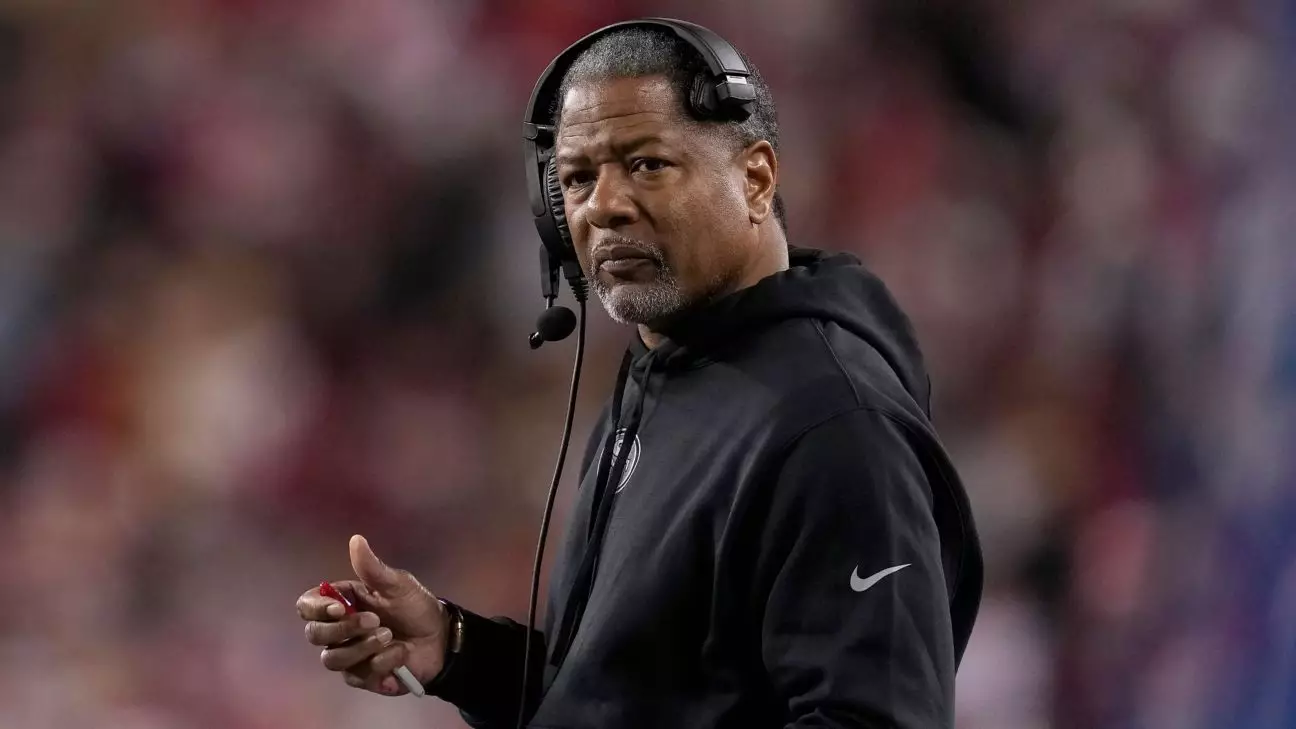The New York Jets are setting the stage for a transformative era with the hiring of Steve Wilks as the new defensive coordinator, a pivotal move amidst the leadership changes under head coach Aaron Glenn. This decision is not merely a shift in position; it signifies the Jets’ attempt to emerge from a consistent cycle of underperformance and establish a more resilient identity on defense. This article delves deeper into the implications of this hire, the challenges he faces, and the broader changes within the franchise.
The Significance of Wilks’ Experience
Steve Wilks brings with him a wealth of experience that could prove invaluable to the Jets. Having led the Arizona Cardinals as head coach and served as the interim head coach for the Carolina Panthers, Wilks knows the pressures associated with leading a team. Despite an underwhelming record in his only season with the Cardinals, his journey in coaching offers lessons and insights that are crucial for Glenn, who is embarking on his first head coaching venture. Glenn’s desire to lean on Wilks as a mentor reveals the Jets’ strategic thinking in valueing experience over familiarity.
Glenn’s approach is refreshing; acknowledging his need to delegate defensive responsibilities allows him to focus on broader team management. This management style reflects a maturation process for a first-time head coach who understands the complexities of the NFL landscape. Wilks’ prior setbacks with the San Francisco 49ers, where he struggled to maintain the formidable defense initially established by DeMeco Ryans, must also inform his strategies moving forward.
The Jets’ defense, which has consistently ranked among the NFL’s elite in yards allowed, faces a significant crossroads. The potential free agency of key players such as D.J. Reed and Jamien Sherwood leaves the lineup with uncertainty. Wilks must swiftly assess his options and work with what could be a radically different roster next season. Transitioning from one season to the next is always rife with challenges, but the stakes are higher for Wilks as he attempts to maintain the high standards set by his predecessors.
Wilks, recognized for his expertise in defensive strategies, particularly in coaching the secondary, has a lot of rebuilding to do. He must swiftly develop not just a game plan but also a cohesive unit that can execute it effectively. The Jets, under the previous coordinator Jeff Ulbrich, were impressive on several fronts, yet the dips in performance in critical moments—especially during the playoffs—must serve as a warning sign to Wilks. Analyzing these shortcomings while establishing a tough defensive mindset will be vital for ensuring the squad is playoff-ready in the upcoming season.
One of the most overlooked elements of successful coaching staff dynamics is chemistry. Although Wilks and Glenn have yet to work together, their shared commitment to excellence could foster an effective partnership. This sentiment is echoed in Glenn’s commitment to filling his staff with the best available coaches, regardless of prior relationships. The hiring of Chris Banjo as special teams coordinator and discussions surrounding Tanner Engstrand for offensive coordinator suggest that Glenn is building a staff that emphasizes varied experiences and perspectives, further emphasizing the point that successful coaching is a collaborative effort.
In an industry where ego often plays a detrimental role, the willingness to prioritize the team’s needs over personal ambitions is commendable. This philosophy positions the Jets to leverage the combined strengths of their coaching staff and build a more resilient organization. Wilks must embrace this collaboration to foster an environment conducive to growth and improvement, which ultimately leads to better on-field performance.
As the Jets look ahead, the signing of Steve Wilks is indicative of a larger strategy to reshape the team’s identity. The combination of Glenn’s managerial vision and Wilks’ experience presents an opportunity to turn the franchise’s fortunes around. While the challenges are significant—especially with a shifting roster and the need to establish a strong defensive backbone—the possibility of transformation looms large.
The 2024 season may be a proving ground for both Glenn and Wilks, and their ability to adapt to the pressures of the NFL will ultimately dictate the Jets’ trajectory. For fans and analysts alike, watching these developments will be a narrative filled with anticipation, as the Jets seek to return to the playoff conversation amidst a reshuffled roster and coaching staff.


Leave a Reply